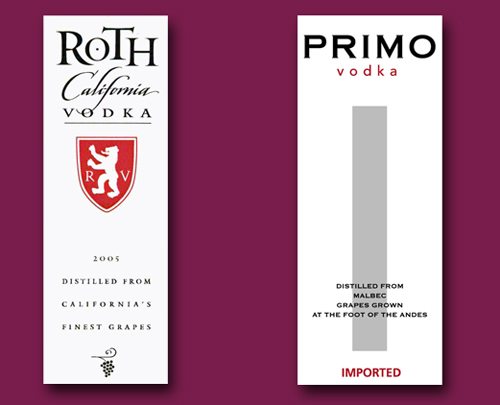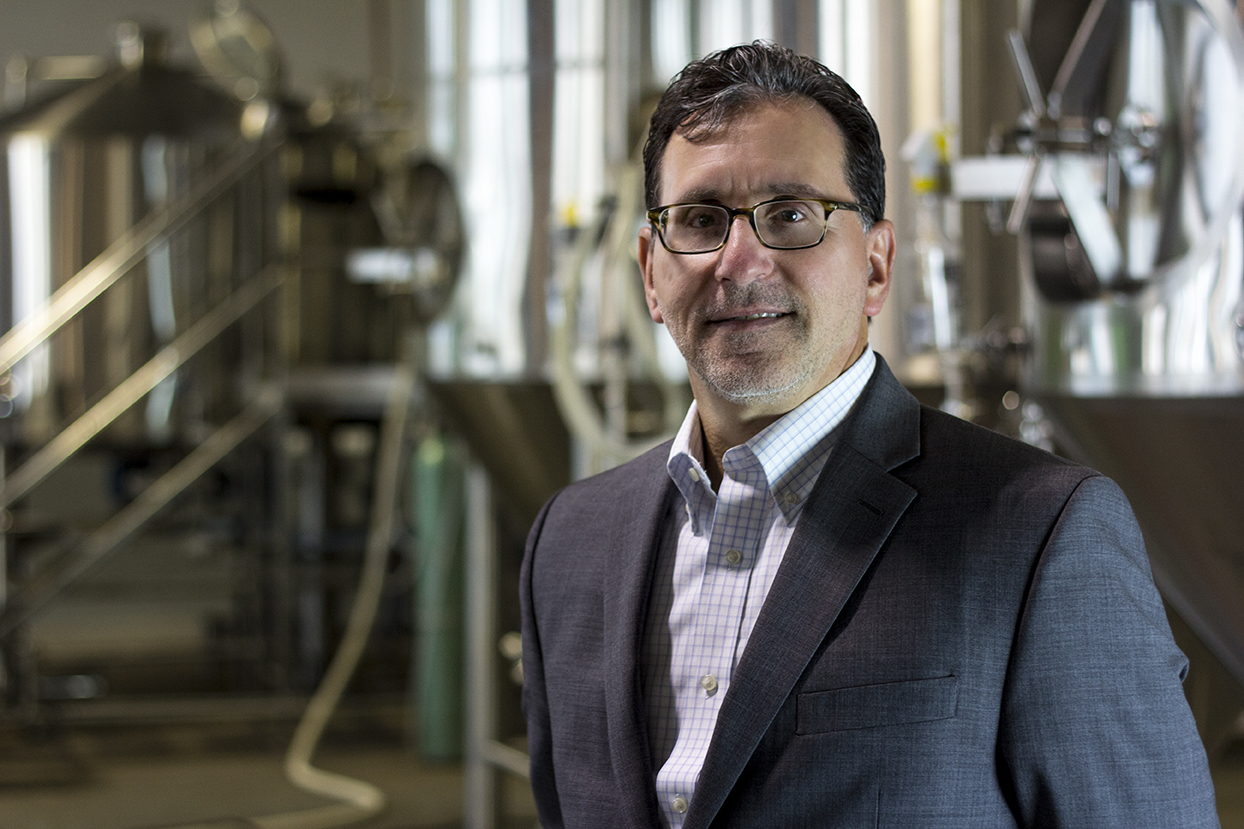TTB does not usually allow vintage-, varietal- or appellation-type claims on distilled spirits labels. The rationale is that these concepts tend to be more appropriate for wine. But here are a couple of notable exceptions. Roth Vodka displays “California” in much the manner of an appellation. This vodka also happens to be distilled from grapes, and has something close to a vintage date on the front label. The latter apparently went too far, and TTB directed Roth to remove the date.
In some ways, the Primo Vodka label goes a bit further. It mentions a specific grape type, along with the source of those grapes. One side tends to argue that these claims are truthful and verifiable. TTB tends to argue that characteristics such as vintage, varietal and appellation are subtle to begin with; distillation (let alone distillation to the point of neutrality) tends to obliterate such characteristics; and it’s misleading to suggest otherwise. Do consumers need this protection?
Please choose a language.
Choose
Sign Up For Email Updates
Submit your e-mail address to receive new blog posts (Bevlog Beverage Law Blog) and occasional news items – with no spam.Latest Posts
Bevlog & Articles
May09

Apr22
Posted In:
FDA to Phase Out Common Synthetic Food Dyes
Today, U.S. Department of Health and Human Services (HHS) Secretary Kennedy announced the Food and Drug Administration’s (FDA) intent to...Read More
Jan02
Posted In:
New Year’s Resolution – Industry Compliance
At this time of year, gym memberships soar, subscriptions to healthy recipe apps fly off the digital shelves, and personal...Read More
Jul12
Posted In:


It’s amazing, if you sit back and think about it, that some government bureaucrat is even allowed to make those kinds of decisions. I don’t understand the scope of authority or the rationale for the TTB to exist, but taken with all the other little intrusions in our lives and business it’s just disturbing how every little piece of minutia in everything that happens has to be run by some guy’s desk in Washington. And if anything, it looks like things are only going to go further in that direction. Of course, it keeps us lawyers in business.
Well if TTB didn’t review all this stuff, wouldn’t some other agency such as FDA or the IRS need to do much of the same work? Surely somebody needs to police the system, no?
Admin, If it was left up to me we’d all be distilling corn mash in our back yards.
Probably wouldn’t display any caloric information on the label.
And you’d make good whiskey, properly identified. But what about your neighbors who did not?
Life is full of risk. My understanding is that it’s not exactly rocket science.
I guess it could be considered a branch of rocket science if you used it for propulsion.
There’s a difference between having someone make sure that people don’t bottle and sell dangerous spirits or lie about what’s in them and having someone decide whether or not a distiller can tell consumers where the grapes came from. The former is arguably for public safety, but the latter is just the meddling of petty bureaucrats who know better than we lowly consumers.
I also agree with Gumpinski that we should be distilling in our backyards. The (re)legalization of home brewing has done wonders for the American beer industry, and I think hobbyist distilling would have a similar salutary effect.